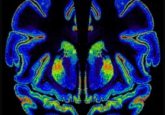Mind over matter: mindfulness as an adjuvant substance use disorder treatment

A study looking into the application of mindfulness techniques to assist the current standard of care for substance use disorder treatment has yielded some promising results.
The potential impact of a form of mindfulness training has been evaluated as an adjuvant therapy for substance use disorder treatment in a study conducted by a team of researchers from the University of Washington (WA, USA) led by Cinthia Price. The study found that the use of Mindfulness Awareness in Body-oriented Therapy (MABT) in conjunction with the current standard of care treatment had a significant positive impact on the rate of substance use amongst the participants.
The research was conducted in a population of 189 women selected from three clinics throughout Seattle, all of whom were experiencing substance use disorder treatment. The group was divided into three cohorts. One group continued with their treatment as usual (TAU), a second received TAU and MABT and the third received TAU with a women’s education curriculum to establish if the extra attention and time were responsible for any positive result.
“Those who received MABT relapsed less. By learning to attend to their bodies, they learned important skills for better self-care.”
The MABT was delivered in one-to-one coaching sessions, in an outpatient environment. The groups were then assessed in intervals of 3 months for the duration of a year. Each assessment included an examination of the patient’s abstinence from their drug of abuse, cravings, emotion dysregulation, psychological distress, mindfulness and interoceptive awareness.
Price was impressed by the results, stating that, “we could teach this intervention successfully in eight weeks to a very distressed population, and participants not only really learned these skills, they maintained increases in body awareness and regulation over the year-long study period.”
- Alcohol: encoding addiction
- Genetically modified skin grafts: the answer to cocaine addiction?
- Neurons on nicotine
The MABT group experienced a significant improvement in all the areas assessed, while the other two groups did not make any significant progress. Furthermore, members of the MABT cohort that completed more than 75% of the intervention sessions displayed a significant reduction in depressive systems when compared to the other two groups. “Those who received MABT relapsed less. By learning to attend to their bodies, they learned important skills for better self-care,” explained Price.
The shifting perception in medicine’s respect for practices focused on the mind and their ability to have clinically significant results is exemplified by studies such as this one: where good, clear scientific research is used to expel the stigma attached to therapies that do not consist of quantifiable doses and detailed explanations of a mechanism of action. One can hope that if research like this can continue to flourish and yield good results, we may begin to improve treatments for ailments such as addiction and depression, where more traditional pharmaceutical approaches have, for so long, struggled to provide a solution.





